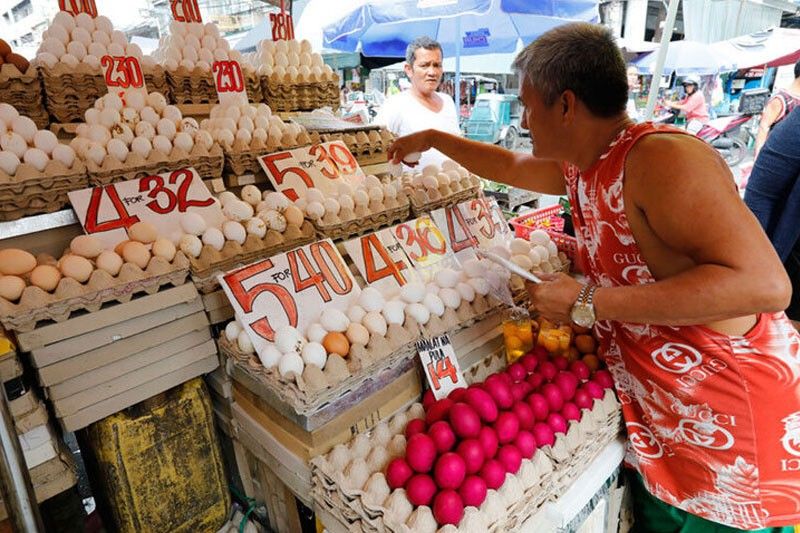Inflation remains high, may hit 8.3% in January

MANILA, Philippines — Inflation remained elevated last month, likely settling between 7.5 and 8.3 percent, as higher electricity, water, fuel and food prices continue to hound consumers, according to the Bangko Sentral ng Pilipinas (BSP).
The BSP said the upward price pressures in January emanated from higher electricity rates, approved water rate rebasing, higher domestic petroleum prices, uptick in the prices of key food items and the annual increase in sin taxes.
On the other hand, the BSP said the reduction in LPG prices as well as the peso appreciation could contribute to easing price pressures in January.
“The BSP will continue to adjust its monetary policy stance at the necessary pace to prevent the further broadening of price pressures, and monitor emerging price developments closely in accordance with the BSP’s price stability mandate,” it said.
Inflation accelerated to 5.8 percent last year, well above the central bank’s two to four percent target range, from 3.9 percent in 2021. It hit a 14-year high of 8.1 percent in December from eight percent in November.
However, BSP Governor Felipe Medalla and most analysts are convinced that inflation has already peaked in December last year.
The BSP expects inflation to ease to 4.5 percent this year and to 2.8 percent next year after it aggressively raised key policy rates, matching the increases delivered by the US Federal Reserve point by point, to tame inflation and stabilize the peso.
The BSP raised its key rates by 350 basis points last year, wiping out the 200-basis-point cumulative cuts delivered in 2020 as part of its COVID-19 response measures.
This brought the benchmark interest rate to an all-time high of 5.50 percent, coming from an all-time low of two percent in 2020.
The Monetary Board, Medalla earlier said, could hike interest rates by another 25 to 50 basis points during its first rate-setting meeting for 2023 scheduled on Feb. 16.
The BSP is confident of bringing back inflation to within the two to four percent range by the third or early fourth quarter this year and further to below two percent by early 2024.
First Metro Investment Corp. (FMIC) and University of Asia and the Pacific (UA&P) Capital Markets Research said inflation likely remained elevated at seven percent in the first quarter.
“We expect the first quarter headline inflation to remain elevated at seven percent, but sharper falls may not happen yet with food supply still constrained, rice prices on the rise, and crude oil prices remaining elevated,” FMIC and UA&P said.
The Philippine Statistics Authority is set to report January inflation data on Feb. 7.
While inflation is showing signs of deceleration, FMIC and UA&P said the inflation rate would not be dropping quickly and would “only reach BSP’s two to four percent as target in early fourth quarter in the light of still elevated crude oil prices and sticky supply issues for food products.”
FMIC and UA&P said they are sticking with their six percent gross domestic product (GDP) growth forecast for this year.
“To be sure, GDP growth in 2023 may not match that of 2022. Nonetheless, the positive signals mentioned above should still keep it at a fast pace of six percent,” they said.
The economy ended 2022 with a 7.6 percent growth, higher than market expectations and the government’s 6.5 to 7.5 percent growth target. It was also faster than the 5.7 percent posted in 2021.
In the fourth quarter of last year alone, the economy grew by 7.2 percent supported by the so-called revenge spending, higher employment and manufacturing.
Overseas Filipino workers’ (OFW) remittances also helped support growth last year.
“The momentum should spillover into 2023 through the multiplier effect,” FMIC and UA&P said.
- Latest
- Trending





























